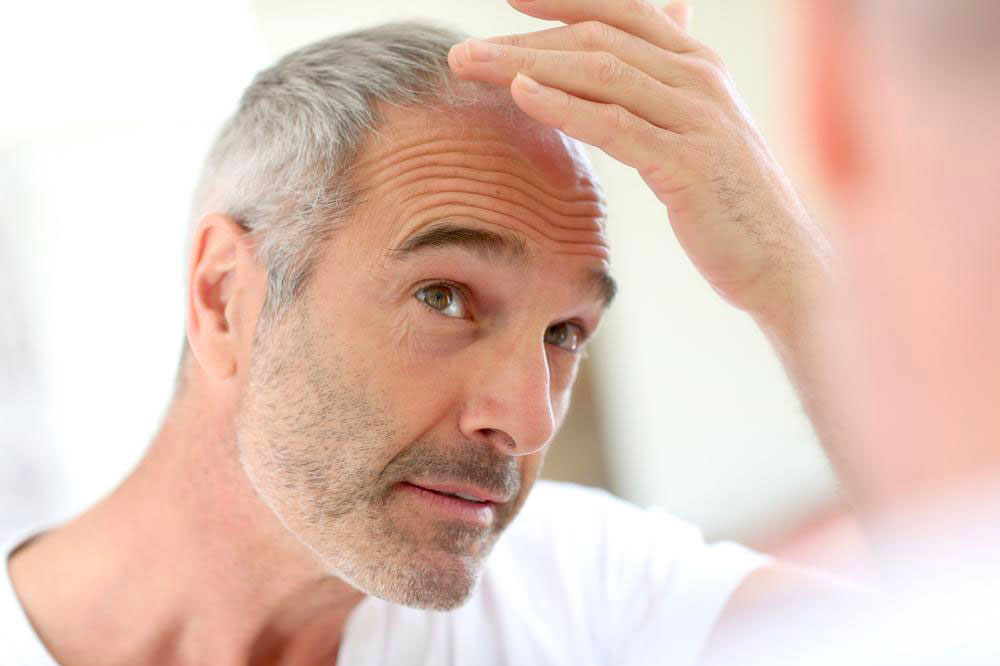Essential Vitamins for Preventing Hair Loss

Hair loss is a common condition that affects thousands of men and women across the country. A person can experience it on the scalp or other parts of the body. Frequent hair loss can affect a person’s self-esteem and can be an indicator of underlying health conditions.
It is vital to know about the essential vitamins for preventing hair loss that can help in controlling the condition.
Why does hair loss happen?
First, let’s take a quick look at the causes and symptoms of hair loss. This condition is often a result of medication, hormonal imbalances, lifestyle or hereditary factors. Male pattern baldness or excessive loss of hair from the scalp, commonly known as alopecia, is mostly a result of genetic factors.
Different people may experience different types of hair loss. Men and women lose their hair in different ways. Some people may experience symptoms such as thinning of hair or bald patches while others may find clumps of hair fall after brushing or washing their hair.
People who have gone through radiation or chemotherapy experience hair loss all over the body, although this hair grows back once the treatment is complete.
Other factors such as age, traumatic experiences or nutritional deficiency can also result in hair loss. The intake of nutrients in the form of vitamins is essential for preventing hair loss.
Essential vitamins for preventing hair loss
Vitamin A
This vitamin is one of the best options for controlling hair fall. The cells in the body need vitamin A to grow and develop. This vitamin also helps the glands in the skin release a greasy substance known as sebum which conditions the scalp and maintains the overall health of the hair. However, an excess quantity of vitamin A can cause hair loss.
Vegetables such as carrots, sweet potatoes, pumpkins, kale, and spinach are rich in beta-carotene which gets converted into vitamin A in our bodies. Dairy and animal products like milk, yogurt, cod liver oil, and eggs also contain this essential vitamin.
B-vitamins
According to research, a B-vitamin known as biotin is one of the best vitamins for hair growth. Some studies show a connection between a lack of biotin in the body and hair loss. Other B-vitamins help in the creation of red blood cells that are instrumental in carrying oxygen and other nutrients to the scalp and nourishing the hair follicles. This is an important process in the development of new hair follicles.
B-vitamins are a part of a wide range of foods such as meat, seafood, almonds, leafy green vegetables, and whole grains.
Vitamin C
Vitamin C is another essential nutrient that can help prevent hair loss. It protects the hair against free radical damage, a process in which reactive oxygen molecules in the body cause harm to cells, proteins, lips, and DNA.
Free radical damage can result in oxidative stress that is harmful to the hair. Additionally, the body requires vitamin C to create collagen which is necessary for maintaining the health of the hair and controlling its aging process. Citrus fruits like lemons and oranges, strawberries, and peppers are all excellent sources of vitamin C.
Vitamin D
Research has shown a link between low levels of vitamin D and alopecia. Vitamin D helps in the creation of new hair follicles and is believed to be important in the process of producing new hair.
However, most people have a vitamin D deficiency. People need to go out in the sun to absorb this vitamin. Food sources that provide vitamin D are cod liver oil, fatty fish, some types of mushrooms, and fortified rich foods like whole grains, milk, and plain yogurt.
Vitamin E
Vitamin E is an antioxidant like vitamin C, and it helps in the prevention of oxidative stress. Studies have known that this as one of the most beneficial vitamins for preventing hair loss.
People struggling with hair loss experienced over 30 percent improved hair growth after taking vitamin E supplements for eight months. Good food sources include sunflower seeds, spinach, almonds, and avocados.
Dietary supplements and other nutrients
Vitamin supplements are necessary if you are unable to include all essential vitamins in your diet. For example, most vegetarians or vegans lack vitamin B12 as it is mostly present in animal food sources. Supplements work best if you already have a deficiency.
An overdose of vitamin or mineral supplements can be dangerous. It is imperative to consult a doctor about the best hair growth vitamins that are right for you.
Other nutrients that are instrumental in controlling hair loss are iron, zinc, folic acid, and protein. Zinc is necessary to maintain the functioning of the oil glands around the hair follicles. However, too much of this nutrient can harm the hair.